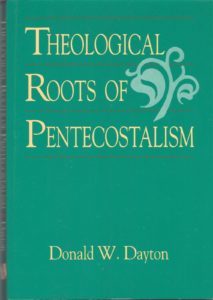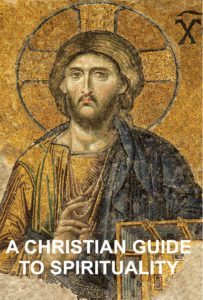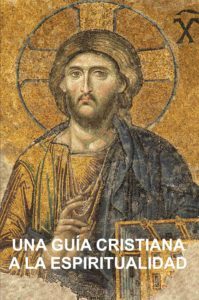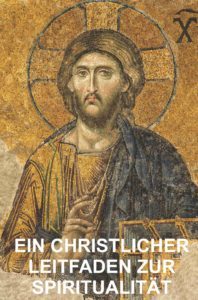Stephen W. Hiemstra's Blog, page 128
February 26, 2021
The Holy Spirit
“I believe in the Holy Spirit.”Ω
By Stephen W. Hiemstra
The Holy Spirit, sometimes called the Holy Ghost, is the third person of the Trinity. The Holy Spirit goes by a number of names and descriptions in scripture including: Spirit of the Lord (Judg 3:10), Spirit of God (Matt 3:16), the Helper or Comforter (John 14:16), Spirit of Truth (John 14:17), Spirit of Life (Rom 8:2), God of Endurance and Encouragement (Rom 15:5), Spirit of the Living God (2 Cor 3:3), Spirit of Wisdom (Eph 1:17), Spirit of Jesus Christ (Phil 1:19), Eternal Spirit (Heb 9:14), Spirit of Glory (1 Pet 4:14), and Spirit of Prophecy (Rev 19:10).
The wide range of titles suggests that the Holy Spirit plays a wide range of roles and suggests a God of power who is anxious to confer many different spiritual gifts. The Apostle Paul writes:
no one can say “Jesus is Lord” except in the Holy Spirit. Now there are varieties of gifts, but the same Spirit; and there are varieties of service, but the same Lord; and there are varieties of activities, but it is the same God who empowers them all in everyone. (1 Cor 12:3-6)
By empowering spiritual gifts, the Holy Spirit makes Christian unity possible because these gifts make the Christian life, community, and mission service possible.
The Holy Spirit sometimes makes avian (or bird like) appearances. In creation, for example, we witness that: “the Spirit of God was hovering over the face of the waters.” (Gen 1:2) The word for hovering here in the Hebrew later describes an eagle (Deut 32:11). In all four Gospels, the Holy Spirit descends in baptism on Jesus like a dove—a fitting symbol of God’s peace (Matt 3:16, Mark 1:10, Luke 3:22, and John 1:32). For this reason, the Holy Spirit is often associated with the sacrament of baptism.
In the Gospel of John, Jesus describes the Holy Spirit saying: “But the Helper, the Holy Spirit, whom the Father will send in my name, he will teach you all things and bring to your remembrance all that I have said to you.” (John 14:26) The Greek word for helper here transliterates as the Paraclete, which also means advocate, intercessor, and mediator (BDAG, 5591). The verbal form of Paraclete also means to comfort, to encourage, to console, and to exhort (BDAG, 5590). John 14:26 equates the Paraclete to the Holy Spirit.Although we frequently think of the Holy Spirit in highly personal terms, the supreme act of the Holy Spirit began at Pentecost in the founding of the church. We read:
And suddenly there came from heaven a sound like a mighty rushing wind, and it filled the entire house where they were sitting. And divided tongues as of fire appeared to them and rested on each one of them. And they were all filled with the Holy Spirit and began to speak in other tongues as the Spirit gave them utterance. (Acts 2:2-4)
The word for Holy Spirit in both Hebrew and Greek means both spirit and wind. The church’s evangelism and service illustrate the Holy Spirit’s continuing provision for reaching the world.
References
Bauer, Walter (BDAG). 2000. A Greek-English Lexicon of the New Testament and Other Early Christian Literature. 3rd ed. Ed. Frederick W. Danker. Chicago: University of Chicago Press. .
The Holy Spirit
Also see:
Preface to A Christian Guide to Spirituality
Other ways to engage online:
Author site: http://www.StephenWHiemstra.net
Purchase Book: http://www.T2Pneuma.com
Newsletter: https://bit.ly/Valtine_2021
The post The Holy Spirit appeared first on T2Pneuma.net.
El Espíritu Santo
“Credo en el Espíritu Santo” [1]
Por Stephen W. Hiemstra
El Espíritu Santo es la tercera persona de la Trinidad. El Espíritu Santo tiene un numero de nombres y descripciones en la escritura incluso: Espíritu del SEÑOR (Jdg 3:10 NBH), Espíritu de Dios (Mat 3:16 NBH), Espíritu de verdad (Joh 14:17 NBH), Espíritu de vida (Rom 8:2 NBH), Espíritu del Dios vivo (2 Cor 3:3 NBH), espíritu de sabiduría (Eph 1:17 NBH), Espíritu de Jesucristo (Phi 1:19 NBH), Espíritu eterno (Heb 9:14 NBH), Espíritu de gloria (1 Pet 4:14 NBH), espíritu de la profecía (Rev 19:10 NBH), Consolador (Intercesor) (Joh, 14:16 NBH), y Dios de la paciencia (perseverancia) y del consuelo (Rom 15:5 NBH).
La amplia gama de títulos sugiere que la Espíritu Santo juege un gran rango de papeles y sugiere un Dios de poder quien está listo a confir muchos diferente dones espirituales. El Apóstol Pablo escribe:
“nadie hablando por el Espíritu de Dios, dice:“Jesús es anatema (maldito);” y nadie puede decir:“Jesús es el Señor,” excepto por el Espíritu Santo. Ahora bien, hay diversidad de dones, pero el Espíritu es el mismo. Hay diversidad de ministerios, pero el Señor es el mismo. Y hay diversidad de operaciones, pero es el mismo Dios el que hace todas las cosas en todos.” (1 Cor 12:3-6 NBH)
Al regalar y el empoderamiento de dones espirituales, el Espíritu Santo hace la unidad Cristiano posible porque estos dones hace la vida Cristiano, comunidad, y servicio de la misión Cristiana posible.
El Espíritu Santo a veces hace aviar (o ave) aparenciás. En creación, por ejemplo, somos testigo que: “el Espíritu de Dios se movía sobre la superficie de las aguas.” (Gen 1:2 NBH) La palabra por movimiento aquí en el Hebreo posterior describe un águila (Deut 32:11). En los cuatro Evangelios, el Espíritu Santo desciende en el bautismo de Jesús en forma de paloma—un símbolo apropiado de la paz de Dios [2]. Por esta razón, en parte, el Espíritu Santo se asocia a menudo con el sacramento de bautismo.
En el Evangelio de Juan, Jesús describe el Espíritu Santo diciendo: ““Pero el Consolador (Intercesor), el Espíritu Santo, a quien el Padre enviará en Mi nombre, él les enseñará todas las cosas, y les recordará todo lo que les he dicho.” (John 14:26 NBH) La palabra griega aquí para ayudante translitera como el Parácleto, que también significa abogado, interesor y mediator. El forma verbal del Parácleto también significa a confortar, animar, consolar y exhortar. Juan 14:26 equivale el Parácleto al Espíritu Santo.
Aunque pensemos frecuentemente del Espíritu Santo en términos muy personales, el hecho supremo del Espíritu Sante comenzó en Pentecostés en la fundación de la iglesia. Leemos:
“y de repente vino del cielo un ruido como el de una ráfaga de viento impetuoso que llenó toda la casa donde estaban sentados. Se les aparecieron lenguas como de fuego que, repartiéndose, se posaron sobre cada uno de ellos. Todos fueron llenos del Espíritu Santo y comenzaron a hablar en otras lenguas, según el Espíritu les daba habilidad para expresarse.” (Act 2:2-4 NBH)
La palabra para Espíritu Santo en Hebreo y Griego significa a la vez espíritu y viento. El evangelio de la iglesia y servicio ilustra la provisión continuando de la Espíritu Santo a alcanzar el mundo.
Notas
[1] Iglesia Presbiteriana (E.U.A.) 2009. El Libro de Adoración. Preparado por la Oficina de Teología y Adoración. Louisville, KY: Geneva Press. Pagina 35.
[2] Matt 3:16, Mark 1:10, Luke 3:22, y John 1:32.
El Espíritu Santo
Ver también:
Prefacio de La Guía Cristiana a la Espiritualidad
Otras formas de participar en línea:
Sitio del autor: http://www.StephenWHiemstra.net
Comprar Libro: http://www.T2Pneuma.com
Boletín informativo: https://bit.ly/Valtine_2021
The post El Espíritu Santo appeared first on T2Pneuma.net.
Der Heilige Geist
Von Stephen W. Hiemstra
“Ich glaube an den Heiligen Geist.” Ω
Der Heilige Geist ist die dritte Person der Dreifaltigkeit. Der Heilige Geist hat eine Reihe von Namen und Beschreibungen in der Schrift, darunter: der Geist des Herrn (Judg 3:10), der Geist Gottes (Matt 3:16), der Tröster (John 14:16), der Geist der Wahrheit (John 14:17), das Gesetz des Geistes, der lebendig macht in Christus Jesus (Rom 8:2), der Gott der Geduld und des Troste (Rom 15:5), der Geist des lebendigen Gottes (2 Cor 3:3), der Geist der Weisheit (Eph 1:17), der Geist Jesu Christi (Phil 1:19), der ewig Geist Gott (Heb 9:14), der Geist der Herrlichkeit (1 Pet 4:14), und der Geist der Weissagung (Rev 19:10).
Das breite Spektrum des Titels legt nahe, dass der Heilige Geist ein breites Spektrum von Rollen spielt und dass ein mächtiger Gott bereit ist, verschiedene spirituelle Gaben zu geben. Der Apostel Paulus schreibt:
Und niemand kann sagen: Jesus ist der Herr, außer durch den Heiligen Geist. Es sind verschiedene Gaben; aber es ist ein Geist. Und es sind verschiedene Ämter; aber es ist ein Herr. Und es sind verschiedene Kräfte; aber es ist ein Gott, der da wirkt alles in allen. (1 Cor 12:3–6)
Durch die Ermächtigung spiritueller Gaben ermöglicht der Heilige Geist die Einheit der Christen, weil diese Gaben das christliche Leben, die Gemeinschaft und den Missionsdienst ermöglichen.
Der Heilige Geist erscheint manchmal als ein Vogel. In der Schöpfung sehen wir zum Beispiel:“der Geist Gottes schwebte über dem Wasser.” (Gen 1:2) Hier das hebräisches Worte für Schwebend später beschreibt einen Adler (Deut 32:11). In allen vier Evangelien steigt der Heilige Geist in der Taufe auf Jesus herab wie eine Taube—ein passendes Symbol für Gottes Frieden (Matt 3:16, Mark 1:10, Luke 3:22, and John 1:32). Auf diesem Grund wird der Heilig Geist oft mit dem Taufesakrament in Verbindung gebracht.
Im Johannesevangelium beschreibt Jesus den Heiligen Geist und sagt: “Aber der Tröster, der Heilige Geist, den mein Vater senden wird in meinem Namen, der wird euch alles lehren und euch an alles erinnern, was ich euch gesagt habe.” (John 14:26) Das griechische Wort für Helfer transliteriert hier als Paraklet, das auch Anwalt, Fürsprecher, und Vermittler bedeutet (BDAG, 5591). Die verbale Form von Paraklet auch bedeutet zu ermutigen, zu trösten und zu ermahnen (BDAG, 5590). Johannes 14:26 gleicht den Paraklet zu dem Heiligen Geist.
Obwohl wir häufig sehr persönlich an den Heiligen Geist denken, begann der höchste Akt des Heiligen Geistes zu Pfingsten mit der Gründung der Kirche. Wir lesen:
Und es geschah plötzlich ein Brausen vom Himmel wie von einem gewaltigen Sturm und erfüllte das ganze Haus, in dem sie saßen. Und es erschienen ihnen Zungen, zerteilt und wie von Feuer, und setzten sich auf einen jeden von ihnen, und sie wurden alle erfüllt von dem Heiligen Geist und fingen an zu predigen in andern Sprachen, wie der Geist ihnen zu reden eingab. (Acts 2:2-4)
Das Wort für Heiliger Geist auf Hebräisch und Griechisch bedeutet sowohl Geist als auch Wind. Die Evangelisation und der Dienst der Kirche veranschaulichen die fortwährende Provision des Heiligen Geistes, die Welt zu erreichen.
Verweise
Bauer, Walter (BDAG). 2000. A Greek-English Lexicon of the New Testament and Other Early Christian Literature. 3rd ed. Ed. Frederick W. Danker. Chicago: University of Chicago Press. .
Der Heilige Geist
Siehe auch:
Einleitung auf Ein Christlicher Leitfaden zur Spiritualität
Andere Möglichkeiten, sich online zu engagieren:
Autoren Seite: http://www.StephenWHiemstra.net
Herausgeber Seite: http://www.T2Pneuma.com
Mitteilungsblatt: https://bit.ly/Valtine_2021
The post Der Heilige Geist appeared first on T2Pneuma.net.
February 23, 2021
Dayton’s Story of Pentecostalism

Donald W. Dayton [1]. 2004. Theological Roots of Pentecostalism. Metuchen NJ: Hendrickson Publishers [2].
By Stephen W. Hiemstra
I stumbled on to Theological Roots of Pentecostalism during a visit to Wesley Theological Seminary in Washington, DC [3] in 2006. Donald Dayton received an award from the faculty that day and he preached in the chapel on the many faces of Wesley. Later, I bought copies of this book and another of his books, Discovering an Evangelical Heritage.
Theological Roots of Pentecostalism appealed to me because I had recently become acquainted with a Pentecostal mission evangelizing Muslims. I was intrigued by the different style of worship and by the dedication of the evangelists that I met who were Pentecostals. I wanted to learn more about them.
OverviewDayton raises 4 points that were insightful.
The Four Square gospel is very different. He describes a Pentecostal as someone who sees Christ as savior, Baptizer of the Holy Spirit, healer, and coming King (173). A typical Presbyterian confesses Christ only as Lord and Savior.The Pentecostal reads the books of Luke and Acts with special interest (especially Acts 2). The hermeneutic used is devotional (23). Essentially, each verse should be read as if the words “in my life” were appended to it.The discussion of the Latter Rain movement was thought provoking. The basic idea is that the gifts of the spirit were especially prominent during the the Apostolic period and would also reappear in the latter days. The reference to Joel 2:28—And it shall come to pass afterward, that I will pour out my Spirit on all flesh; your sons and your daughters shall prophesy, your old men shall dream dreams, and your young men shall see visions. Even on the male and female servants in those days I will pour out my Spirit. (Joel 2:28-29 ESV)—the recent active participation of women in ministry is accordingly taken to be a sign of the Second Coming of Christ.Dayton links the switch among American evangelicals from Post-millennial to Pre-millennial eschatology to a profound discouragement with following the Civil War. The approaching end was signaled, not by progress, but by decline (163). This transition is important in explaining the attitude towards evangelism and service that we see today. Those waiting to be raptured (beamed up) have less incentive to promote reform than those preparing the world to receive the coming King.Christians owe a debt of gratitude to the Pentecostal movement which many people date to the 1906 revival on Azusa Street in Los Angeles, California [4]. The Pentecostal movement began with an outpouring of the Holy Spirit which touched all races, ethnic groups, and genders from its inception and it has spread worldwide. If it were not for the Pentecostal movement, the number of Christians in the world would have declined in the 20th century, much like their numbers have in the United States.
AssessmentI enjoyed this book. Its take away points are likely to color my view of Pentecostals for a long time. I would recommend it to Christians curious about Pentecostalism and interested in the history of religion in America.
Footnotes[1] Professor emeritus, Northern Baptist Theological Seminary (www.Seminary.edu).
[4] http://www.AzusaStreet.org
Dayton’s Story of PentecostalismAlso See:Tennant Highlights Five Gifts Johnson: Prison Ministry in BrazilGrams: Outpouring of the SpiritOther ways to engage online:Author site: http://www.StephenWHiemstra.netPublisher site: http://www.T2Pneuma.com Newsletter: https://bit.ly/Valtine_2021The post Dayton’s Story of Pentecostalism appeared first on T2Pneuma.net.
February 22, 2021
Judgment: Monday Monologues (podcast) February 22, 2021
 Ken Burtram Photography
Ken Burtram PhotographyBy Stephen W. Hiemstra
This morning I will share a prayer and reflect on the judgment. After listening, please click here to take a brief listener survey (10 questions).
To listen, click on this link.
Hear the words; Walk the steps; Experience the joy!
Judgment: Monday Monologues (podcast) February 22, 2021
Also see:
Monday Monologue On March 26, 2018
Other ways to engage online:
Author site: http://www.StephenWHiemstra.net,
Publisher site: http://www.T2Pneuma.com.
Newsletter: https://bit.ly/Valtine_2021
The post Judgment: Monday Monologues (podcast) February 22, 2021 appeared first on T2Pneuma.net.
February 21, 2021
Prayer Day 14
By Stephen W. Hiemstra
Almighty Father.
Judge of the living and the dead. Compassionate Spirit.
May we follow your example and passionately pursue truth and justice.
Help us to open our hearts and sharpen our minds.
In the power of your Holy Spirit, grant us compassionate hearts for those in need.
In Jesus’ precious name, Amen.
Prayer Day 14
Also see:
Believer’s Prayer
Other ways to engage online:
Author site: http://www.StephenWHiemstra.net
Purchase Book: http://www.T2Pneuma.com
Newsletter: https://bit.ly/Valtine_2021
The post Prayer Day 14 appeared first on T2Pneuma.net.
Oración Dia 14
Por Stephen W. Hiemstra
Padre Todopoderoso,Juicio de los vivos y los muertos, Espíritu de compasión,
Que podamos seguir tu ejemplo y apasionadamente perseguir la verdad y justicia.
Ayuda nos abrir nuestros corazones y agudizar nuestras mentes.
En el poder de tu Espíritu Santo, da nos los corazones compasivos para los necesitados.
En el preciosos nombre de Jesús, Amén.
Oración Dia 14
Ver también:
Prefacio de La Guía Cristiana a la Espiritualidad
Otras formas de participar en línea:
Sitio del autor: http://www.StephenWHiemstra.net
Comprar Libro: http://www.T2Pneuma.com
Boletín informativo: https://bit.ly/Valtine_2021
The post Oración Dia 14 appeared first on T2Pneuma.net.
Gebetstag 14
Von Stephen W. Hiemstra
Allmächtiger Vater. Richter der Lebenden und der Toten. Mitfühlender Geist.
Mögen wir deinem Beispiel folgen und leidenschaftlich nach Wahrheit und Gerechtigkeit streben.
Hilfe uns, unsere Herzen zu öffnen und unseren Geist zu schärfen.
Gewähre uns in der Kraft deines Heiligen Geistes mitfühlende Herzen für die Bedürftigen.
In Jesu kostbarem Namen, Amen.
Gebetstag 14
Siehe auch:
Glaubens Gebet
Andere Möglichkeiten, sich online zu engagieren:
Autoren Seite: http://www.StephenWHiemstra.net
Herausgeber Seite: http://www.T2Pneuma.com
Mitteilungsblatt: https://bit.ly/Valtine_2021
The post Gebetstag 14 appeared first on T2Pneuma.net.
February 19, 2021
Judgment
“From there he will come to judge the living and the dead.” [1]
By Stephen W. Hiemstra
Are you ready for your final exam?
When I taught in the university, my final exam was never a surprise. The week before the final I would pass out ten questions as homework and announce that five of these questions would be on the final exam. Now these were not easy questions—my questions were designed to encourage my students to master the subject. My good students invariably typed up answers to all ten questions and simply turn all of them in on the day of the examination; my lazy students showed up empty handed and unprepared to answer the questions.
God’s judgment works a bit like a take-home exam. We know the questions from scripture and from our ongoing relationship with God and His people, the church. Jesus’ commands and teaching are not a surprise.
So why does judgment create such drama?
One answer comes from a surprising source. Immanuel Kant observed that an evil person was not one who wills evil, but one who secretly exempts themselves from judgment, perhaps hoping that God does not exist (Arendt 1992, 17) [2].
Another answer is that many people avoid making decisions, hoping that they can escape accountability. Hannah Arendt was a German Jew who, having escaped Nazi death camps before coming to America, was asked to report on the Adolf Eichmann trial in Jerusalem (1961) for the New Yorker magazine. Eichmann was the German officer during the Second World War who organized Adolf Hitler’s program of extermination of the Jews known as the “Final Solution”. Arendt attended the trial expecting to see a hateful, anti-Semite only to discover that Eichmann was more of a petty bureaucrat, someone unable to think for himself. In the case of Eichmann, the face of evil was that of someone unable or unwilling to think for themselves (Arendt 1992, 97–101).
Why do we care about the Hannah Arendt story? Because we worship a righteous judge in heaven who expects that we will exercise sound judgment here on earth. We must be good stewards of the wisdom and knowledge of truth entrusted us. Not judging is not an option—robotic thinkers walk the path of Adolf Eichmann, not the path of Jesus Christ. We are accountable both for judgments we make and those we refuse to make.
So what does God’s judgment look like?
The picture of God as a divine judge brings to mind the story of King Solomon and the two prostitutes. Both women had babies but when one baby died the women fought over the living child. Solomon tested the hearts of the women by threatening the child with death. In doing so, the women revealed their true feelings for the child and he was able to return the child to its rightful mother (1 Kgs 3:16–28).
Just like Solomon, God is a passionate judge who pursues truth and refuses to accept lies at face value [3]. Woe to the person who invites such testing! This is perhaps why the Lord’s Prayer includes the petition: “And lead us not into temptation, but deliver us from evil.” (Matt 6:13)
Footnotes
[1] The references in this chapter to the Apostle’s Creed are all taken from FACR (2013, Q/A 23). Another translation is found in (PCUSA 1999, 2.1—2.3).
[2] Kant further speculated that true justice requires that our lives be examined in their entirety which is only possible if resurrection and eternal, impartial judge exist. Therefore, justice and accountability require both eternal life and God!
[3] If you do not like Solomon test, think about the testing of Job who innocently lost everything (Job 1). Or, how about testing of Jesus in the desert? (Luke 4:1–13).
References
Arendt, Hannah. 1992. Lectures on Kant’s Political Philosophy. Chicago: University of Chicago Press.
Faith Alive Christian Resources (FACR). 2013. The Heidelberg Catechism. Cited: 30 August, 2013. Online: https://www.rca.org/sslpage.aspx?pid=372.
Presbyterian Church in the United States of America (PC USA). 1999. The Constitution of the Presbyterian Church (U.S.A.)—Part I: Book of Confession. Louisville, KY: Office of the General Assembly.
Judgment
Also see:
Preface to A Christian Guide to Spirituality
Other ways to engage online:
Author site: http://www.StephenWHiemstra.net
Purchase Book: http://www.T2Pneuma.com
Newsletter: https://bit.ly/Valtine_2021
The post Judgment appeared first on T2Pneuma.net.
Juicio
“de donde vendrá a juzgar a los vivos y a los muertos.” [1]
Por Stephen W. Hiemstra
¿Estás listo para su examen final?
Cuando enseñaba en la Universidad, mi examen final no fue nunca una sorpresa. Una semana antes la final que daria diez preguntas como tarea y anunciar que cinco de las preguntas sería en el examen. Ahora estas no eran preguntas facil—mis preguntas eran diseñadas a alentar mis estudiantes a dominar la tema. Mis estudiantes buenas respondieron a todas las preguntas y se volvieron todas las respuestas por el dia de examen; mis estudiantes perezoso venian con las manos vacías y sin preparación a responder a las preguntas.
El juicio de Dios funciona un poco como a un prueba para llevar a casa. Sabemos las preguntas de las escritura y de nuestra continua relación con Dios y su pueblo, la iglesia. Los mandamientos de Jesús y la enseñanza no son un sorpresa.
Así que ¿por qué crea el juicio tanta drama?
Una repuesta viene de una fuente inesperada. Immanuel Kant observó que una persona malvada no era aquel que quiere el mal, pero que en secreto exime a sí mismos de juicio, quizá con la esperanza que Dios no existe (Arendt 1992, 17) [2].
Una respuesta otra es que muchas personas evita la toma de decisiones con la esperanza de que escapa de la rendición de cuenta. Hannah Arendt era Judio alemán quien, habiendo escapado los campos de exterminio nazis antes de venir a América, se le pidió que informara sobre el juicio de Adolf Eichmann en Jerusalen (1961) por la revista The New Yorker. Eichmann era official aleman durante el Guerra Segunda Mundial quien organizó el programa de exterminio de los Judios conocido como la “Solución Final” de Adolf Hitler. Arendt atendia el juicio esperando a ver un contra-semita odiosa sólo a descubrir que Eichmann era más un burócrata quien era incapaz de pensar por si mismo. En el caso de Eichmann, el rostro del mal fue alguien que no puede o no quiere pensar para si mismo (Arendt 1992, 97-101).
¿Por qué nos preocupamos en la cuenta de Hannah Arendt? Porque adoramos un juez justo en el cielo quien espera que también nosotros emitiremos juicios sensatos aquí por la tierra. Debemos ser buenos administradores de la sabiduría y del conocimiento de la verdad nos ha confiado. No juzgando no es una opción—pensadores-robótica caminan el camino de Adolf Eichmann, no el camino de Jesús Cristo. Somos responsables tanto para los juicios que hacemos y las que nos negamos a hacer.
Entonces, ¿qué parece la juicio de Dios?
El foto de Dios como un juez divina trae a mente la historia de el Rey Salomón y las dos prostitutas. Las dos mujeres tenían bebés pero cuando un bebé murio las mujeres lucharon por el hijo vivo. Salomón probó las corazones de las mujeres por amenazando el bebé con la muerte. Por esta manera, las mujeres revelaron sus verdaderos sentimientos por el bebé y él fue capaz de devolver el bebé a su madre justa (1 Kgs 3:16-28).
Al igual que Salomón, Dios es un juez quien sigue la verdad con pasión y no acepta las mentiras a valor nominal [3]. Ay a la persona quien invita esas pruebas! Esta es tal vez por que el Padre Nuestro incluye la petición: “Y no nos metas (no nos dejes caer) en tentación, sino líbranos del mal (del maligno)” (Matt 6:13 NBH)
Notas
[1] Iglesia Presbiteriana (2009, 35).
[2] Kant especuló además que la verdadera justicia requiren que nuestras vidas serán examinada en su totalidad que es solamente possible cuando existen resurección y eterna justicia impartial. Por lo tanto, justicia y rendición de cuentas requiren ambos la vida eterna y Dios!
[3] Si no te gusta la prueba de Salomón, pensar en la prueba de Job que, inocentemente, lo perdió todo (Job 1). O bien, ¿qué hay de las pruebas de Jesús en el desierto? (Lucas 4:1-13)
Referencias
Arendt, Hannah. 1992. Lectures on Kant’s Political Philosophy. Chicago: University of Chicago Press.
Iglesia Presbiteriana (E.U.A.) 2009. El Libro de Adoración. Preparado por la Oficina de Teología y Adoración. Louisville, KY: Geneva Press.
Juicio
Ver también:
Prefacio de La Guía Cristiana a la Espiritualidad
Otras formas de participar en línea:
Sitio del autor: http://www.StephenWHiemstra.net
Comprar Libro: http://www.T2Pneuma.com
Boletín informativo: https://bit.ly/Valtine_2021
The post Juicio appeared first on T2Pneuma.net.







